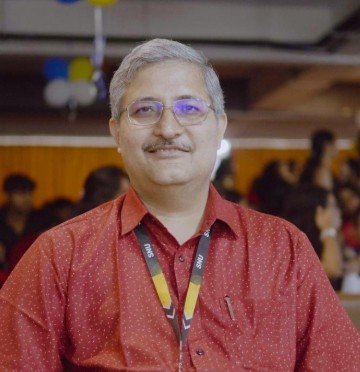
Dr. Probal Roy Chowdhury is currently Director, Centre for New India Studies, and Professor, Department of English, at Sister Nivedita University, Kolkata. Earlier in his career as an academic, he has taught English and Cultural Studies at Amrita Vishwa Vidyapeetham (Deemed University) in Coimbatore (2006-2018) and served as a Fellow with the Centre for Policy Studies, Chennai (2018-2020). He was selected as a Rajeev Circle Scholar in History with a one-year book-writing fellowship grant awarded by the US-based Motwani Jadeja Family Foundation in 2022. Subsequently, Professor Roy Chowdhury was also the recipient of the prestigious Azad fellowship from the Maulana Abul Kalam Azad Institute of Asian Studies, Ministry of Culture, Government of India.
Professor Roy Chowdhury’s much acclaimed doctoral thesis, Changing Profile of Community Participation in School Education in Madras Presidency: 1820-1920 was a research work that extended upon the findings of the late Gandhian thinker and historian Dharampal (1922-2006) who in his seminal work The Beautiful Tree (1983) showed how prior to the British rule there had been in the Madras Presidency a wide-spread and inclusive public education system in place which was more advanced than the public education systems to be found in Europe till up to the early nineteenth century. In his doctoral work, Professor Roy Chowdhury presented — perhaps for the first time — substantial evidence to indicate that there was a major deprivation created within the educational domain of the so-called ‘backward communities’ in India. This was consanguineous with the establishment and growth of English education under British rule.
Professor Roy Chowdhury has worked in the past with the TVS Educational Society (Chennai) as an educational consultant, and also as a consultant in NWN India. He is widely traveled and has participated in international academic and cultural delegations of the Government of India. In Kolkata, Professor Roy Chowdhury is part of a small team involved in developing an India studies resource centre with a special focus on documenting the past and the present socio-religious and cultural traditions of Bengal.